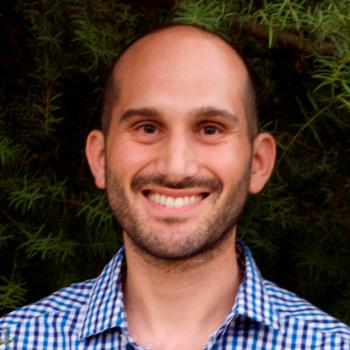Over the years, researchers from Stanford University’s Brain Stimulation Lab had begun hearing about military veterans traveling to Mexico to take a powerful plant medicine called ibogaine for trauma healing.
“When we heard these special operations veterans were going down to clinics in Mexico to receive this treatment, it sparked our curiosity,” recalls Ian Kratter, a clinical assistant professor of psychiatry and behavioral sciences at Stanford.
Ibogaine has shown documented potential as a treatment for serious drug addiction, in particular for chronic opioid use.
But as the anecdotal stories of recovery from military veterans who had experienced trauma started filtering through, the Stanford researchers decided to launch a study in November 2021 to investigate further.
Their study, published Jan. 5 in Nature Medicine, examined 30 U.S. Special Forces veterans who participated in a program called VETS, short for Veterans Exploring Treatment Solutions, that coordinates trips to Mexico where ibogaine is unregulated (it’s a Schedule 1 drug in the United States).
Following the study, Nolan Williams, the study’s lead author, said “the results were dramatic.”
Veterans reported significant reductions in their disability a month following the treatment, including average improvement of 88% in PTSD symptoms, 87% reduction in depression symptoms and an 81% improvement in anxiety symptoms.
PMN recently spoke with Ian Kratter, who jointly supervised the research work with Williams, to discuss the study results and his thoughts on the future of ibogaine. The following is an edited version of the interview with Kratter.
We’ve heard a lot about ibogaine’s potential for drug-addiction treatment. Could you tell me a little bit about why it also looks promising for treating people with traumatic brain injuries and what led you to study it for this purpose?
IK: You’re absolutely right that most of the scientific literature for ibogaine prior to our study has focused on addiction disorders, primarily opioid and cocaine. Our general interest is in rapid-acting antidepressants or other rapid-acting treatments for neuropsychiatric illness. And so, when we heard about these special-operations veterans going down to clinics in Mexico to receive this treatment, it sparked our curiosity. When the opportunity arose to study it, we were very interested in trying to understand what sort of benefits these veterans were experiencing and if there were any potential downsides of the treatment.

And that’s really what led to our study. From a “how does the drug work perspective,” I think what’s very exciting about ibogaine is, at least in animals, it seems to turn on or upregulate the number of what we call trophic factors. Things like GDNF, glial cell line-derived neurotrophic factor, BDNF (brain-derived neurotrophic factor), NGF (nerve-growth factor).
These are essentially chemical signals that tell nerve cells or the helper glial cells in the brain to potentially be healthier, to grow to form new connections. And so, it may allow the brain to enter a more plastic state, a state where it can perhaps reorganize in a way that it otherwise couldn’t. That may allow a brain to potentially heal from things like trauma.
What’s unique about ibogaine compared to some of the other psychedelic substances we’re hearing about like MDMA and psilocybin?
IK: It’s a really important question because ibogaine is really is quite unique. While it loosely fits under the umbrella of a psychedelic, it’s very much what we would call an atypical psychedelic. In the paper we mostly refer to it as something called an oneirogen, which describes the fact that ibogaine induces this intense dream-like state. It works on a whole variety of different receptors in the brain, which is different from the majority of the other psychedelics. Classic psychedelics work through the serotonin 2A receptor, but ibogaine really hits a variety of different receptors and creates this extremely unique experience, and it’s a long-lasting experience. It lasts a number of hours where someone is very internally focused and often experiencing intense memories of their life. These are often emotionally salient memories, memories that may be related to traumas, and it allows people to re-explore these memories from a different perspective. And that seems to be associated with significant healing when it comes to things like PTSD and depression, for example.
What are some of the safety concerns related to ibogaine?
IK: The major concern with ibogaine is that it’s known to prolong what’s called the QT interval, and that is a measure of how long essentially it takes the electrical heart cells to repolarize and get ready for another beat. And a number of different medications have this effect, but ibogaine seems to have a bigger effect in that regard. And the problem is that this prolonging of the QT interval can increase the risk for an arrhythmia to develop, and in its most extreme cases this kind of arrhythmia can be fatal. So it’s critical to us, critical to anyone who might be considering ibogaine that they ensure that there is appropriate medical monitoring in place so that should this occur, that there’s appropriately trained folks to handle it. We were fortunate that in our study nobody had any issues like that, and we think that may have had something to do with the co-administration of magnesium, but that’s really the main thing that has been associated with ibogaine, and some people think it’s an impediment to its ongoing development.
Can you tell me what’s next on the ibogaine research front as it relates to traumatic brain injuries? Is there increased interest in it from this perspective?
IK: Well, I hope so. This was an initial pilot study that has a lot of limitations. It was not a randomized controlled trial, but that said, the effects that we saw were quite striking. And that very much makes us want to study it some more. But how to do that remains kind of unclear given the regulatory environment. Other things that are going on for us right now is that we are continuing to evaluate some of the data we collected as part of this study. We collected MRIs and EEGs before and after, so we’re in the process of evaluating those and trying to see if we can get any sort of clues or hints as to what’s changing in the brain.
Are you looking at any other potential uses for ibogaine beyond traumatic brain injuries?
IK: I think that was one of the elements of our study that was really quite exciting. Our primary outcome was this measure of disability and trying to capture the TBI (traumatic brain injury)-associated disability. And we saw folks go from, on average, mild to moderate disability to kind of borderline or no disability. But we also collected measures of depression, anxiety and PTSD and saw remarkable improvements in those, as well. So if you look at remission, we’re talking about more than 80% of people falling into remission levels on anxiety, depression and PTSD one month after the treatment. Again, there are important limitations of our study, being open label and small. But nevertheless, they’re very compelling numbers in terms of remission rates; response rates were even higher. That makes us wonder: Does this treatment or does this medicine have potential for folks who don’t have a traumatic brain injury but have depression or have PTSD? We would like to understand that. Certainly, the effects we saw are promising, but because all of these veterans did have TBIs, I can’t say that we would see that same effect in folks without TBIs.
Is there anything else you would like to add?
IK: From our perspective, we were very excited about the findings. Again, I think we were open minded but weren’t really sure what we would find when we started this study. And the impacts were particularly striking. One item we didn’t talk about was suicidality, and unfortunately we didn’t have a measure that was specifically focused on suicidality. But the rated depression instrument we use has 10 questions. And the 10th question is about suicidal ideation or thoughts that you wish you weren’t alive, anything kind of on that spectrum. And before these veterans went down for the treatment, over half of them reported some amount of suicidal thinking, ranging from a passive death wish to more significant suicidal thoughts. And that strikingly decreased after the treatment. And on top of that, a number of the veterans told us when they came back after the treatment that they hadn’t been honest with us when we’d asked them that question, that in fact they had had some degree of suicidal thoughts but had denied it. And so, the effects may actually be even more striking than we reported. When you just think about the tragic epidemic of veteran suicide in this country right now, I think it further underscores our interest in the need to continue to explore any potential solutions.

